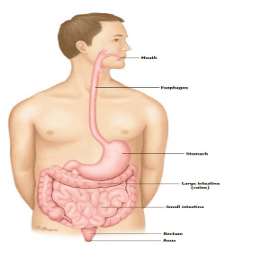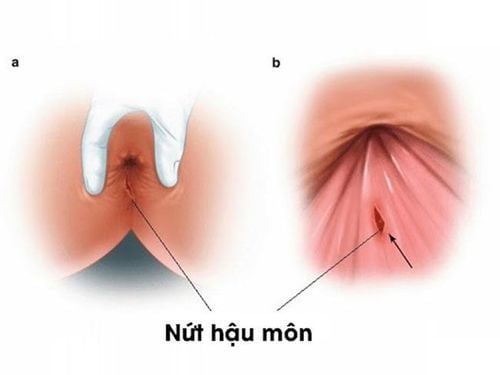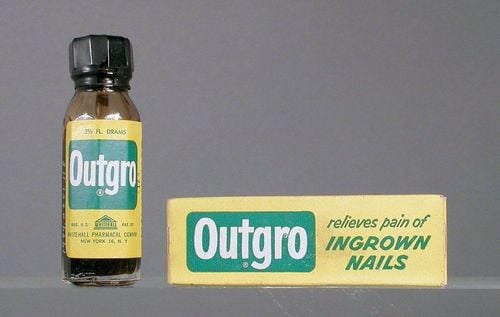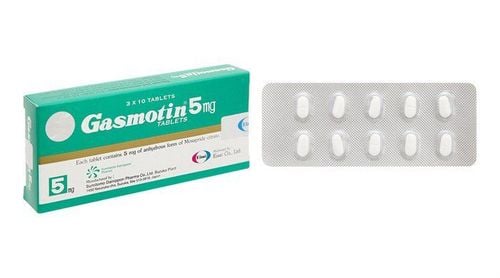This is an automatically translated article.
You may be afraid if you go to the toilet with blood and pain in the anus after defecation. Most causes of rectal bleeding are not life-threatening. Common causes include hemorrhoids and anal fissures, which are discussed in the article below.
1. What causes stools to have an unusual color?
"What is anal bleeding when going to the toilet?" It is a question asked by many people when encountering this condition. Bloody stools are often a sign of a problem in the digestive tract, which originates at any point from the mouth to the rectum. Color plays a huge part in determining where your problem is and can often be interpreted as follows:
- Darker stools indicate more bleeding in the digestive tract. As stool slowly moves through the small and large intestines, any blood collected has time to clot and darken. Melena is the term used to describe black, tarry stools.
- Red and lighter stools indicate bleeding in the lower end of the digestive tract because of the fresh blood. Hematochezia is the term used to refer to the movement of blood through the anus, whether directly or in the stool.
- Sudden, profound changes in the color of stools that quickly return to normal indicate that the problem may be caused by something you ate. For example, eating licorice, iron supplements, or blackberries can make your stools purple to black, while eating red beets can definitely give your stools a striking red color.
- Although pale, chalky stools do not suggest bleeding, they are a definite sign of a liver problem such as inflammation. The appearance of these stools is often accompanied by yellowing of the skin or eyes.

Phân có máu: Biểu hiện của bệnh gì?
2. Causes of bloody stools with anal pain
Many people still think that when passing blood with anal pain, it is more likely that they have hemorrhoids. But not necessarily, that's just one of the reasons for the above phenomenon. The following are the causes of bloody stools and anal itching:
- Stomach - duodenal ulcers : Ulcers are sores in the lining of the stomach or upper intestine. Blood from a peptic ulcer may be red or it may be black and tarry.
- Anal fissure : Due to constipation or large, solid stools difficult to pass. This can cause cracks in the skin. Stretching the anal skin exposes the fissures. Blood from an anal fissure is bright red.
- Polyp: A small tumor on the lining of your intestinal tract. There are several different types of polyps. Polyps are some of the most common diseases. These polyps develop on the lining of the colon or large intestine. About 25% of adults age 50 and older have this type of polyp. Deformed polyps can develop into colorectal or colon or rectal cancer. Polyps are usually asymptomatic, but they can sometimes cause bloody stools. The blood may be red or dark and resemble tar.
- Hemorrhoids: A condition in which swollen blood vessels can bulge from the anus. Hemorrhoids are often uncomfortable. They can cause pain or itching. Because there are many blood vessels around the anus and rectum, hemorrhoids can bleed bright red.
- Gastroenteritis is a disease of the stomach and intestines. It can be caused by a virus, bacteria, or parasite. Occasionally, gastroenteritis can cause bloody diarrhea. This is more common in bacterial gastroenteritis.
- Vascular Dysplasia: Unexplained bloody stools are usually due to vascular dysplasia. Vascular dysplasia can occur when the blood vessels in the large intestine grow or weaken. This type of blood can be red or dark and black in color.
- Inflammatory bowel disease (IBD) is an autoimmune disease of the intestines. When you have an autoimmune disease, the immune system attacks part of your own body. In IBD, this leads to inflammation and damage to the intestines. Crohn's disease and ulcerative colitis are the two most common types of IBD. Symptoms may include bloody stools, which can be red or dark, and tarry.
- Cancer: Since blood in the stool can be a symptom of colorectal cancer, it's important to see your doctor if you notice this symptom. Bleeding from colorectal cancer can be red or dark and tarry.
- Ischemic colitis: occurs when the blood vessels supplying the large intestine are narrowed or blocked. Most cases of ischemic colitis occur in the elderly. Symptoms include: red blood in the stool, diarrhea, abdominal pain, vomiting.

Nứt hậu môn có thể dẫn tới đi ngoài ra máu kèm đau rát hậu môn
- Sexually transmitted diseases: You are at high risk of many dangerous diseases if you have unprotected sex, especially anal sex because there are many bacteria that cause proctitis, anus.
- Dysentery: This is also one of the causes that can cause the patient to pass out fresh blood. Symptoms of dysentery include severe abdominal pain, loose stools with blood and mucus, constant urge to defecate...
3. How to deal with anal bleeding after going to the toilet
Better yet, if you are not sure about your anal bleeding after going to the toilet, you should immediately seek medical attention for monitoring and treatment, especially in cases where the cause is disease caused.
Patients should also form the following habits for themselves to improve their condition:
3.1. Practice scientific defecation habits This is said to be a good habit that people who experience bloody stools should establish for themselves. Try to choose to have a bowel movement at a certain time of the day, limit straining and clean the anus and genitals after each bowel movement.
3.2. Establish a suitable diet The digestive system will work better and reduce blood loss when there is a suitable diet. The laxative foods such as green vegetables and fruits, radishes, lotus roots, egg yolks... are very helpful in contributing to improving the condition of blood in the stools. You also do not forget to limit spicy foods, greasy foods and fast foods.
3.3. Clean anus every day Bloody stools will make the anus more susceptible to infection. Therefore, the patient needs to clean the anus every day to avoid infection.
3.4. Maintain a comfortable, stable mood Anxiety and stress are proven by experts to affect the digestive process, causing the lining of the small intestine to contract irregularly and blood circulation is poor. Therefore, a comfortable mentality will help the patient repel the disease to pass out blood more quickly.

Hãy tránh tình trạng lo lắng và căng thẳng khi bị chảy máu hậu môn sau khi đi vệ sinh
3.5. Maintain a healthy lifestyle A healthy lifestyle, regularly exercising, eating at the right time, sleeping on time will help the patient have a healthier body and have a good impact on the recovery process. blood demand.
In short, blood in the toilet and anal burning pain will become dangerous if not treated in a timely manner. Therefore, when you find yourself experiencing bleeding for many days with no signs of improvement, you should immediately go to medical facilities for examination, diagnosis and treatment advice.
Please dial HOTLINE for more information or register for an appointment HERE. Download MyVinmec app to make appointments faster and to manage your bookings easily.













